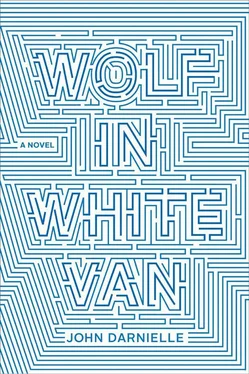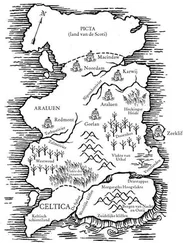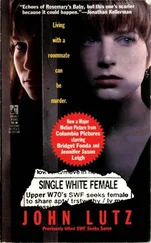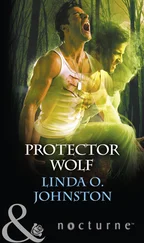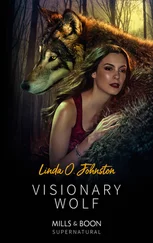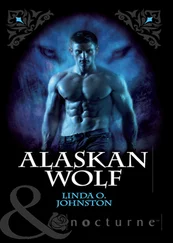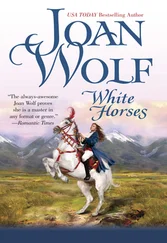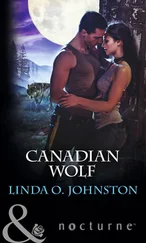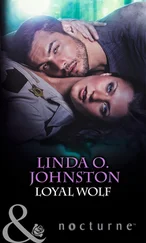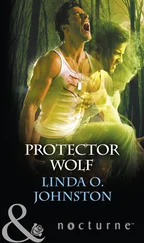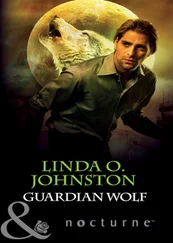John Darnielle
Wolf in White Van
To my early teachers — Debbie Vancil, Terry Kneisler,
Rosemary Adam — true guardians of the Trace
“And the treasure?” I broke in eagerly.
He laughed in savage self-mockery.
“There was no gold there, no precious gems — nothing”—he hesitated—”nothing that I could bring away.”
— Robert E. Howard, “The Thing on the Roof”
My father used to carry me down the hall to my room after I came home from the hospital. By then I could walk if I had to, but the risk of falling was too great, so he carried me like a child. It’s a cluster memory now: it consists of every time it happened and is recalled in a continuous loop. He did it every day, for a long time, from my first day back until what seemed like a hundred years later, and after a while, the scene blurred into innumerable interchangeable identical scenes layered one on top of the other like transparencies. On the wall to the right, as you head toward my room, there’s a small bookcase with a painting above it, a western scene: hills and trees, a lake. A blue and green vista near sundown, a silent place. But if you look harder, or happen to turn your head at the right moment as you pass, you see figures, human figures, on what you might otherwise take for an empty ridge. It’s like an optical illusion, this hunting party on the near hill, their curving hats dark in the orange dusk: they come out of hiding if you look at the empty scenery long enough. They were always there in my journey, popping up in the same place each time I’d drift by in my half-sleep. They never lost their power to surprise just by being there, a little smoke rising from somewhere within their three-strong party, their brushstroke rifles resting lightly on their shoulders.
Next to the bookcase, receding into the wall, there’s a chest-high shelf for a rotary phone. To the left, just past the painting, on the other side of the hall, is the bathroom, the sort of open door that if the cameras found it as they passed through the house in a horror movie would trigger a blast of synthesizers. In my many days home after the hospital, I spent long hours in there, lifetimes: in the tub, at the sink. Just getting in and out. It would be a long time before I could comfortably stand underneath a showerhead, and my parents didn’t trust me to sit in the bathtub by myself, so the bathroom became a communal space of forced intimacy. Reconstructed skin is very sensitive to temperature and moisture; the pain sneaks up on you. Every other day they’d bathe me, and every time, I’d feel like it wasn’t so bad for a few minutes; and then the heat would slacken the resewn flaps of my cheeks a little, and the tingling would start up, a rippling alarm traveling down confused wires. I was too generally exhausted to be able to experience fear or panic for longer than a moment, and I’d try to bear the feeling evenly, but its grip was hard and sure, and it held me. My parents’ eyes on me, trying to head off the pain at the pass, to start hoisting me out before I had to ask. Several kinds of pain for several people. The portal still glows with menace in my memory.
Ahead and beyond, two further doors: mine, straight on, and to the right, my parents’. My parents’ room is an uncataloged planet, a night sky presence unknown to scientists but feared by the secret faithful who trade rumors of its mystery. I stood before this door once and didn’t go in: that’s the extent of the legend, really, but my journey down the hall that night, down the same stream through which my father carries me now in my wheeling memory, hints at pockets in the story that are still obscure, which will never find light. What if I’d gone in? I didn’t go in. I stood there a minute and then turned away. If I’d turned around: What then? There are several possibilities; they open onto their own clusters of new ones, and there’s an end somewhere, I’m sure, but I’ll never see it.
I feel and remember my father’s arms underneath me when I’ve come home from the hospital; he isn’t strong enough to do this, but he is forcing himself to do it; I am heavy in his arms, and I feel safe there, but I am lost, and I need constantly to be shoring up the wall that holds my emotions at bay, or I will feel something too great to contain. I see the painting, those cowboy huntsmen at dusk, and they surprise me a little, and I feel my breath catch in my chest when I scan the bathroom; and then I arc my great head a little to the right toward my parents’ room, which disappears from view as my father nudges at the base of my bedroom door with his foot and then turns jaggedly on his heels so we’ll both fit through the frame. He lowers me onto my new bed, the one from the hospital-supply place on White, and I feel the hot egg crate mattress underneath the sheet. Dad squeezes my hand like I remember him doing when I was very small. We look at each other. Teamwork. This happens several times a day, or it’s a single thing that’s always happening somewhere, a current into which I can slip when I need to remember something.
I saw this kid playing on the big metal wheel with the soldered piping: the merry-go-round. The merry-go-round at the fair is for babies, but the playground kind can throw you into the air at high speed; they have to put wood chips around it to break your fall just in case. This happened twice while I was watching: the kid spun the wheel faster and faster, jumped on, tried to crawl in to the still hub and lost his footing, and ended up sailing into the air and coming down hard. He’d lie there and laugh, dizzy, and then punch reset on the whole scene.
At my grandparents’ place, after the last fish went missing, they filled the pond in with cedar chips: I used to play out there when I was little. It was a half-hidden spot between the house and the garage, too small a space to think of as a yard — three cypresses, some rocks here and there, and the former pond. I remember the changeover from water to wood, the shift in tone: that was how I ended up conjuring the place now. I lived whole lives out there back then.
The day they drained the pond I’d gone out back by myself after dinner. This had been a lakeside clearing in a forest for me, a magic place of wizards and wandering knights. It was still magic without the water, but the magic was different now. I could sense it. I closed my eyes.
When I opened them, I felt my mind working transformations. No lake but a cave floor. Not trees but torches burning with a mystic light. Behind them: the back wall of a cave. Before them, me, enthroned, my regal seat hewn from ancient rock, immovable, imperious.
The throne was actually a single stone brought in by the crew that filled in the pond. But under the weight of my small body, I felt it sprout ornately decorated arms with claws at the ends, and a bejeweled latticework back that climbed up several feet above my head. Transformed, it now boasted four short, sturdy legs that terminated in great glowing orbs pressing hard into the earth beneath. I took control of the place, of the scene: I made it mine. Groans echoed in the cave. Brittle bones broke beneath the knees of my crawling subjects. We had moved from San Jose to Montclair a few months back; it had ruined something for me, I was having a hard time making new friends. I had grown receptive to dark dreams.
I saw animal skins running down the cave floor, skull dust rising. Everyone in my orbit would have a terrible day: the arbiter of days had decreed it. From my increasingly improbable perch I looked toward the dark heavens somewhere up beyond the imagined cave ceiling, and I pantomimed the aspect of a man thinking hard about what he might want to eat. And then I looked back down to the present moment, and I spoke; “I am King Conan,” I said. “I thirst for blood.”
Читать дальше
